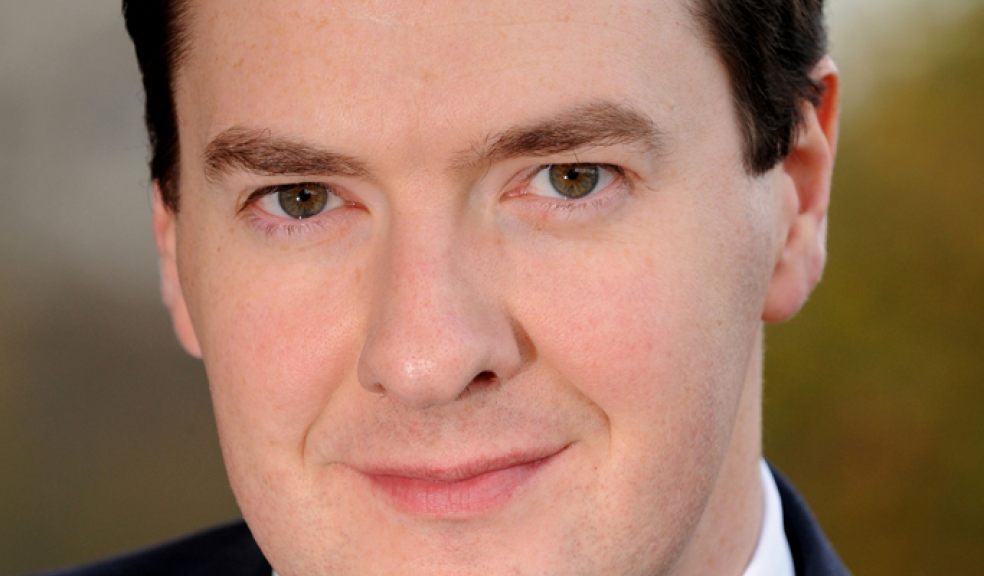
IoD delivers 10-point message to the Chancellor
The Institute of Directors (IoD) puts forward 10 points the Chancellor must consider for the Autumn Statement.
The overriding message is that he must stick to fiscal Plan A, whilst ensuring our transport and energy infrastructure and our tax system provide a firm basis for economic recovery.
Gerry Jones, chairman of the IoD in the South West, said: “George Osborne is in a difficult position. The global economy has been much rockier over the last two years than most expected; growth has been weaker and public borrowing higher than we hoped.
“Some would like The Chancellor to abandon his targets and embrace bigger deficits, but he must hold his nerve. It’s only through controlling public debt that Britain will retain the confidence of the markets and create strong foundations for recovery.
“Swift action to establish a British shale gas industry would be a welcome initiative to develop a new sector in this country, and reduce our reliance on expensive imports.
“If Mr Osborne moves to give shale an emphatic green light, he will have manufacturers and consumers cheering him on.”
The IoD’s full Autumn Statement submission is available here.
Key Points:
- The world economy faces serious risks, notably from the unsolved Eurozone crisis and the US fiscal cliff, but there are grounds for optimism. The money supply is rising, the squeeze on real wages is easing and inflation has fallen considerably.
- Despite weaker-than-forecast growth, the Governor should not abandon his fiscal targets. In the short term, easing off deficit reduction will cause gilt yields to rise, while in the long term a high debt-to-GDP ratio will hold back growth. We have not seen significant austerity so far, and the bulk of what we have seen has come from tax rises and cuts to investment spending. There is scope for further cuts to current spending.
- Equally as important as fiscal discipline is making the tough decisions on infrastructure. At the top of the list is airport capacity. The Government must commit to implementing the findings of the Davies Commission as soon it reports. The UK needs an expansion of hub capacity to create space for flights to emerging markets. This will be vital if our businesses are to expand into these areas.
- Decarbonisation must happen at the lowest possible cost. Government energy policies are adding significant costs to British industry. Over-subsidising the inefficient renewables we currently have is the most expensive path to take; we should instead prioritise gas in the short term, while investing in research in more cost-effective forms of low-carbon technology for the future.
- 87 per cent of IoD members say that Government spending on infrastructure should be increased, with the majority suggesting this be financed through cuts to other areas of spending. Aside from transport and energy, 83 per cent of business leaders think that investment in broadband infrastructure, especially in rural areas, would improve their productivity.
- The UK tax system is hopelessly complicated and in desperate need of major reform. The IoD has advocated a flat rate of 30 per cent on all income. This would make tax collection much cheaper, reduce evasion and hugely boost the UK’s competitiveness. In order to achieve this, public spending should be gradually reduced to 33 per cent of GDP.
- Pending major reform, the Chancellor should commit to tax reduction in the medium term. Corporation tax should be brought down to 15 per cent to give the UK a real competitive edge, while the boundary for the higher rate of tax should be raised from its current low level. In addition, the highest rate of income tax should be reduced to 40 per cent or lower.
- A time-limited increase in capital allowances for investment in plant and machinery should be considered to bring forward business investment. Businesses are sitting on around £700bn in cash. Probably the main reason for the lack of investment is considerable economic uncertainty, but temporary capital allowances could encourage investment now.
- Road fuel duty and Air Passenger duty should be frozen in real terms, to allow them to reduce to competitive levels over time. More broadly, government attempts to crack down on tax avoidance should not penalise reasonable planning to avoid double taxation.
- The Chancellor should establish a tax regime to encourage the development of Britain’s shale gas fields. A steady level of development could create 35,000 jobs, halt rising gas imports and meet 10% of current UK gas demand for 103 years.

















